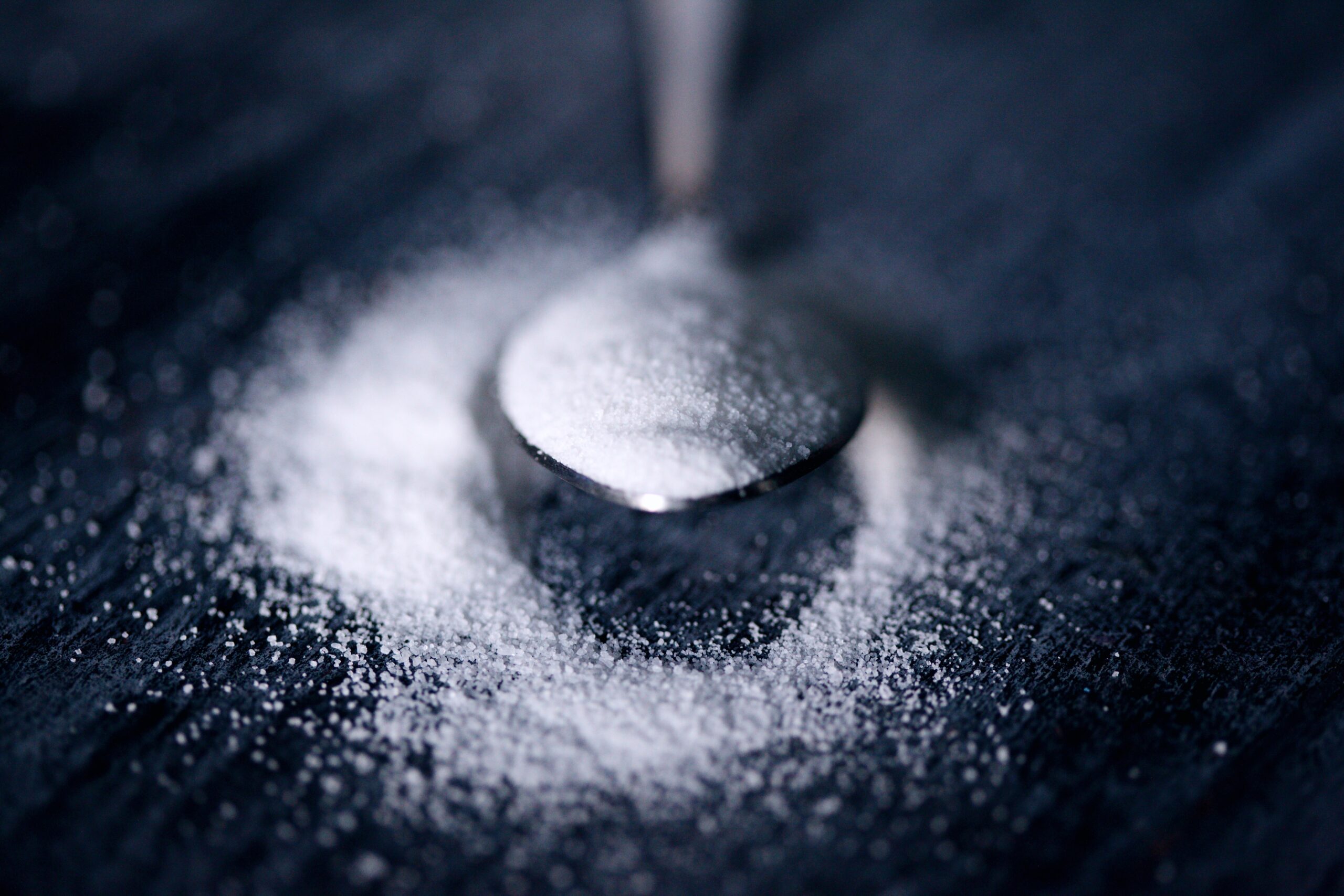Whey protein isn't just made from dehydrated whey. This amino acid- and BCAA-rich product also contains sweeteners. These substances give this dietary supplement a very sweet flavour and also help mask the taste of the proteins.
So why do some athletes and body-builders prefer to consume protein powders without sweeteners? Are these additives really harmless, and what's wrong with them? Get the answers to these questions in the following lines.
What are sweeteners and why are they found in whey?
Sweeteners are synthetic compounds designed to replace sugar in a food product. The purpose of this substitution is to reduce the caloric intake of the product in question, while giving it a sweet taste. As a result, consumers can enjoy a sweet-tasting treat without actually consuming sugar.
For whey and protein powder producers, the addition of a sweetener is necessary to mask the taste of raw whey. Dehydrated whey has a pronounced, rather unpleasant taste in the mouth. Without a sweetener, and flavoring, this protein powder lacks the taste qualities for pleasant supplementation. Athletes and body-builders may quickly turn their backs on it, looking for another way to supplement their protein intake.
By adding sweeteners to whey, it will have a flavor much more conducive to its consumption, and therefore to marketing. As mentioned above, most of these substances are acaloric. What's more, with their much higher sweetening power than white sugar, their introduction into whey or protein powders won't cause your calorie intake to skyrocket.
Is there any danger in consuming protein powders containing sweeteners?

At first glance, sweeteners have all the qualities of whey enhancers, without the drawbacks of sugar. They have hundreds of times more sweetening power than ordinary sugar, and contribute few calories. However, a number of studies cast doubt on the safety of these compounds.
In recent years, researchers have been particularly interested in sucralose. This organochlorine is currently one of the most widely used sweeteners, alongside aspartame. According to the studies " Sucralose affects glycemic and hormonal responses to an oral glucose load "1 and "Sucralose, A Synthetic Organochlorine Sweetener: Overview of Biological Issues "2, this sugar substitute can disrupt metabolism in a number of ways. Repeated intake, for example, can lead to hormonal imbalances, metabolic disorders and disruption of intestinal flora. Unfortunately, sucralose is one of the most common additives found in whey and other protein powders.
What's more, for those who like to cook with whey, several recent studies warn against heating sucralose, as it can become unstable and release potentially toxic compounds when heated to 98°C.
It's worth noting that high-level or recreational athletes are likely to consume whey over a fairly long period of time. This factor should prompt greater attention to the composition of protein powders. In the same way as for your everyday diet, you need to consider the nature and origin of each ingredient.
The sweetening power of sweeteners is also detrimental to athletes and body-builders. Sucralose, for example, is up to 700 times sweeter than ordinary sugar. By taking whey shakes, you gradually get your brain used to this excessively sweet taste.
Gradually, we'll seek out this sweet taste in our daily diet or in other dietary supplements we consume. Paradoxically, by choosing a "sugar-free" but sweetened protein powder, consumers are encouraged to consume more and more sugar.
So, whatever your level, we strongly advise you to choose a whey with no additives or sweeteners.
Choosing a whey without sweeteners: our advice
Many brands now understand athletes' concerns about the dangers of sweeteners. After a period of sugar demonization in recent years, some of them are starting to offer proteins naturally sweetened with whole sugars, for example (unrefined cane sugar, maple sugar...).
In any case, there are two choices when it comes to consuming sweetener-free whey: either make do with the unsweetened taste, or add the healthiest and most suitable sugar source possible.
In the first case, whey will deliver all its benefits. It will deliver a good dose of amino acids and BCAAs for optimal mass gain and/or muscle recovery. Remember, however, that taking protein powder should be a source of pleasure, not a constraint.
As for the second solution - mixing whey with a sugar source - it's not a bad idea! Contrary to popular belief, carbohydrates are not necessarily bad for sports, quite the contrary. A recovery drink should have roughly the same particle concentration as blood. Adding carbohydrates makes an isotonic drink more conducive to rehydration, assimilation of amino acids and recharging of glycogen reserves.
Ideally, whether for endurance or bodybuilding athletes, a diluted whey shaker should contain 5% (w/w) carbohydrates. Please note that this concentration should not be confused with the percentage of carbohydrates in the product's dry powder!
These carbohydrates can take various forms, such as unrefined whole cane sugar. Correctly dosed, this trace element-rich sugar ensures effective rehydration and replenishment of glycogen stocks, in addition to the beneficial effect of proteins on muscle fibers: enough to optimize your post-workout recovery phase, without consuming additives!
To find out more :
- Our pharmacists' opinion on native whey
- Can whey be made at home?
- Is ProtéAlpes whey organic?
- The ecological consequences of industrial whey
- Can whey be taken during breastfeeding and pregnancy?













